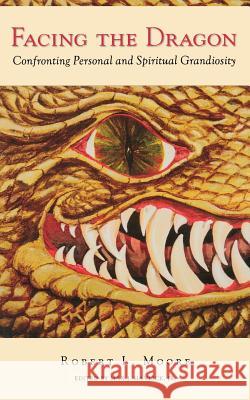Facing the Dragon: Confronting Personal and Spiritual Grandiosity » książka
Facing the Dragon: Confronting Personal and Spiritual Grandiosity
ISBN-13: 9781888602210 / Angielski / Miękka / 2013 / 248 str.
Facing the Dragon: Confronting Personal and Spiritual Grandiosity
ISBN-13: 9781888602210 / Angielski / Miękka / 2013 / 248 str.
(netto: 100,32 VAT: 5%)
Najniższa cena z 30 dni: 102,73
ok. 16-18 dni roboczych.
Darmowa dostawa!
Structured around a series of lectures presented at the Jung Institute of Chicago in a program entitled "Jungian Psychology and Human Spirituality: Liberation from Tribalism in Religious Life," this book-length essay attacks the related problems of human evil, spiritual narcissism, secularism and ritual, and grandiosity. Moore dares to insist that we stop ignoring these issues and provides clear-sighted guidance for where to start and what to expect. Along the way, he pulls together many important threads from recent findings in theology, spirituality, and psychology and brings us to a point where we can conceive of embarking on a corrective course.
Structured around a series of lectures presented at the Jung Institute of Chicago in a program entitled “Jungian Psychology and Human Spirituality: Liberation from Tribalism in Religious Life,” this book-length essay attacks the related problems of human evil, spiritual narcissism, secularism and ritual, and grandiosity. Robert Moore dares to insist that we stop ignoring these issues and provides clear-sighted guidance for where to start and what to expect. Along the way, he pulls together many important threads from recent findings in theology, spirituality, and psychology and brings us to a point where we can conceive of embarking on a corrective course.Traditional doctrinal and historical interpretation both rely heavily on rational analysis. But from the disciples at Emmaus to the beginnings of the present century, it has been the impact of scripture upon the human heart that has changed human lives. In recent decades, this impact has been strengthened by advances in linguistic and literary theory, by such disparate influences as feminism, structuralism, Jungianism, deconstructionism, the analysis of archaic imagery and myth, the recovery of Gnostic texts, and finally an openness to pluralism, whether ethnic, geographic, religious, or interpretive. All of these factors are treated here with a brevity and comprehensiveness which convincingly show that the reader of scripture has a creative and not merely passive role.“If you would understand the deepest roots of terrorism, greed, and religious fanaticism, read Facing the Dragon. But be forewarned: you may find some offshoots in your own garden.”-June Singer, Jungian analyst, author of Boundaries of the Soul











